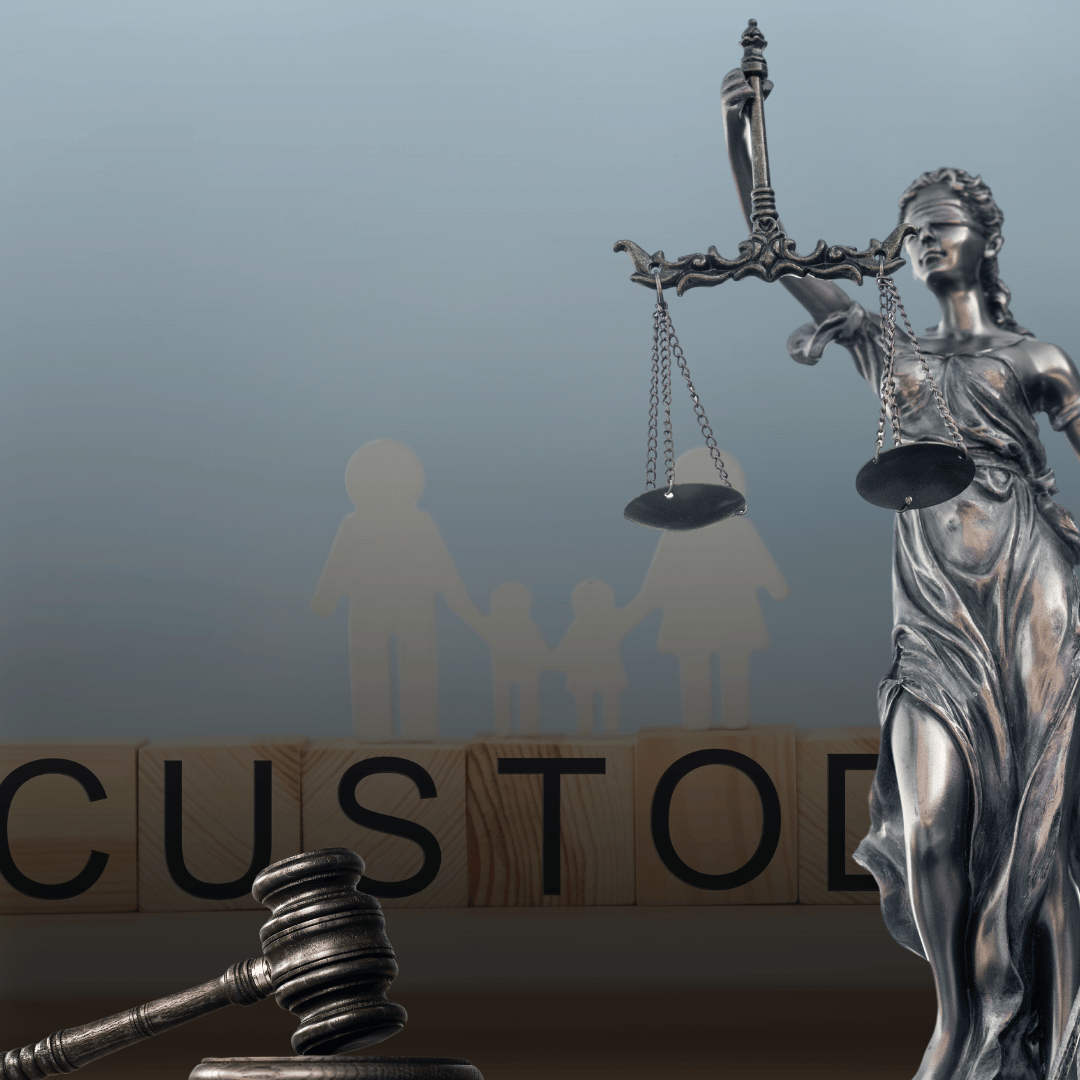If you’re considering modification of custody in Maryland, you’re likely going through some significant life changes—and that can be challenging. As a family law attorney, I worked with many parents in your shoes, and I know that understanding the process can make a big difference. Here’s what you need to know about modifying custody in Maryland, explained in a straightforward way.
Types of Custody in Maryland
In Maryland, custody is divided into two types, Legal and Physical Custody and each focusing on different aspects of your child’s life:
- Physical Custody: This is about where your child lives day-to-day and how much time they spend with each parent.
Sole Physical Custody: The child mainly lives with one parent, though they might still have visits with the other.
- Joint Physical Custody: Both parents share time with the child, helping them stay actively involved in each parent’s life.
- Legal Custody: This is about making important decisions for your child, like those related to their health, education, and overall welfare.
Sole Legal Custody: One parent makes these big decisions on their own.
- Joint Legal Custody: Both parents work together to make decisions, which means ongoing communication is key.
Why Would You Seek a Custody Modification?
Life doesn’t stand still, and sometimes, the original custody plan no longer meets your child’s needs. Here are some common reasons parents decide to request a change:
- Relocation: If one parent needs to move, especially to a different area or state, the current custody plan may need to adjust.
- Changing Needs of the Child: Kids grow, and their needs—whether for special schooling, medical care, or just more stability—can shift over time.
- Parental Fitness Concerns: Issues like substance abuse or neglect can impact a parent’s ability to care for the child, sometimes requiring a change.
- Non-compliance: If one parent repeatedly fails to follow the existing custody plan, it may make sense to revisit the agreement.
How Maryland Courts Handle Custody Modifications
When requesting a change, Maryland courts want to see that there has been a “significant change in circumstances” that directly affects your child’s well-being. It’s all about what’s best for your child. Here’s how you can make a strong case:
- Show that the Change is Beneficial: You’ll want to provide evidence showing how a new arrangement will improve your child’s life—maybe offering more stability, a better school, or a safer environment.
- Prepare the Right Documents: Start with records that help your case, like school reports or medical records, to show why a change is in your child’s best interest.
Steps to Requesting a Custody Modification
The process for modifying custody in Maryland starts with filing a “Petition for Modification of Custody.” Here’s what you’ll need:
- Filing Fees: Fees vary, so check with your local court.
- Current Custody Order: A copy of the existing custody order in Maryland is necessary.
- Clear Reasons for the Request: Write down why the change is needed, with as much detail as possible.
- Supporting Documents: Any proof of your claims, such as medical records or even witness statements, can be helpful.
After filing, the court may set a hearing date and possibly ask both parents to attend mediation. Mediation is a chance to work things out without a long court process.
What Maryland Courts Consider in Custody Changes
When the court reviews a custody modification request, they look at several factors:
- Parent-Child Bond: How strong is the connection between each parent and the child?
- Stability at Home: Courts look at whether each parent can provide a stable, consistent environment.
- School and Community: They also consider how a change might affect your child’s schooling and social life.
- Co-Parenting Willingness: Being able to work with the other parent for your child’s sake is vital.
- Health and Safety: Any concerns about the mental or physical health of either parent matter to the court.
Special Situations
Some situations require extra attention from the court:
- Relocation Requests: If one parent wants to move far away, the court will look at how the move impacts the child’s relationship with both parents, along with the purpose of the move.
- Health Concerns: If either the child or a parent faces health issues that affect caregiving, this can be grounds for modification.
- Third-Party Custody: Sometimes, a close relative may seek custody if neither parent can provide the necessary care.
Preparing for a Custody Hearing
If your modification case goes to a hearing, it helps to come prepared. Gathering relevant documentation can strengthen your case:
- Medical Records: If health needs are part of your request, these records will be helpful.
- School Records: Showing how your child is adjusting can be valuable.
- Financial Proof: Financial stability matters, so have any relevant financial documents ready.
- Witnesses: If friends, family, or professionals can speak about your child’s best interests, their statements could support your case.
Co-Parenting While Modifying A Child Custody
Navigating a custody modification is tough, especially if there’s tension between parents. Staying focused on your child’s well-being can make this time easier for everyone. Here are some tips:
- Keep Communication Open: Aim to talk calmly with the other parent about what’s best for your child, even when things are challenging.
- Avoid Negative Remarks: Speaking negatively about the other parent around your child can create stress and confusion for them.
- Seek Support: Consider a co-parenting class or therapy to help handle any tension that comes up during this process.
Need Help with Your Custody Modification? Contact Us Today!
Modification of custody in Maryland can feel overwhelming, but knowing what to expect can make the process smoother. If you have questions or want guidance, don’t hesitate to reach out to Divorce With a Plan. Remember, you’re not alone in this journey—many parents have faced similar challenges, and with the right steps, you can create a custody plan that best supports your child’s growth and happiness.
Call us today at (240) 269-3592 to schedule a consultation and get the support you need.






